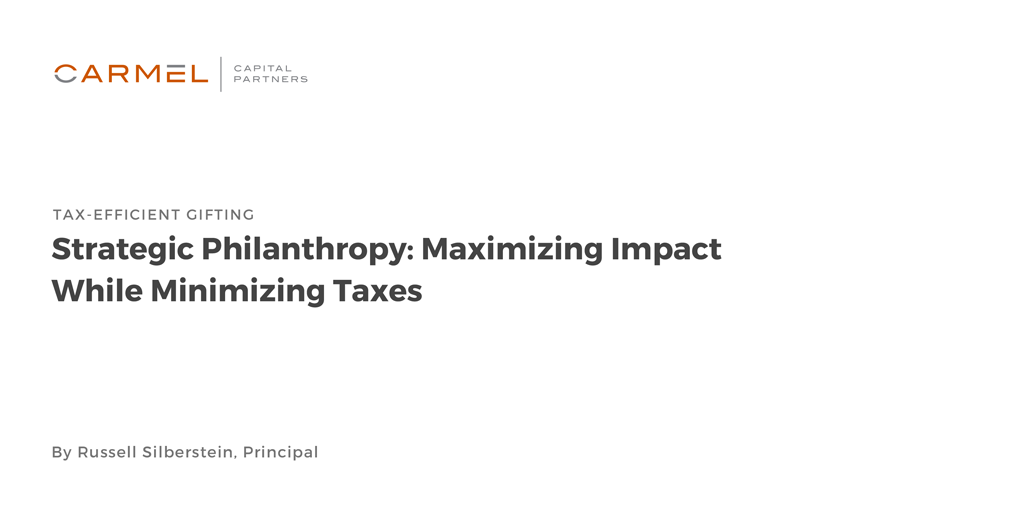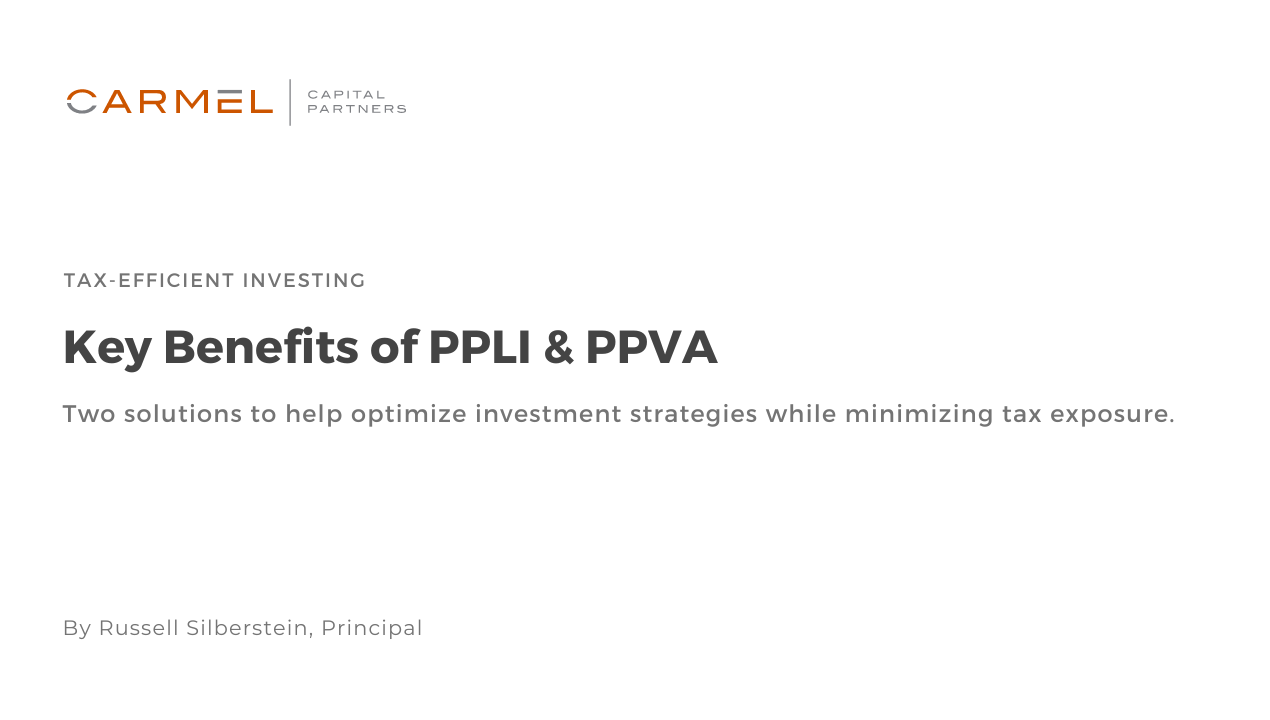Strategic Philanthropy: Maximizing Impact While Minimizing Taxes
Successful philanthropy involves more than just generous giving. It requires thoughtful planning and strategic decision-making, especially when it...
4 min read
 Chelsey Frate
:
November 7, 2023 12:00 PM
Chelsey Frate
:
November 7, 2023 12:00 PM
In an investment landscape where prudence dictates diversification, having a concentrated stock position can appear as a double-edged sword. On one side, they offer the potential for substantial gains, while on the other, having a single equity position as a major source of overall net worth may also cause a great deal of stress and concern.
Many of the families we serve have accumulated wealth through a single stock holding. This article aims to demystify concentrated stock positions by providing six clear tax-efficient strategies to manage them effectively.
A concentrated stock position is defined as a single equity stake comprising approximately 10% or more of an investor's total portfolio allocation. Such positions often arise from various circumstances, such as inheritance, corporate compensation plans, participation in an IPO, or simply a successful investment that has grown disproportionately over time.
In any of the situations above, a common trend among these holders is that they’ve held on to these positions for long periods of time.
Even the largest and most successful companies are not immune to market volatility and economic downturns. This vulnerability was underscored in a study by Eaton Vance, which highlighted the potential risks and volatility associated with individual stocks.
During the study, they examined all actively traded stocks listed on NYSE and NASDAQ since 1981. In this scenario, 68% of US stocks experienced catastrophic loss (defined as a maximum price drawdown greater than 70%.) Individual stocks have historically posted higher volatility and lower median performance than the stock market. A concentrated stock position may expose an investor’s wealth to a wider range of outcomes and longer periods of loss than holding a well-diversified portfolio.


The primary risk of such volatility is that an investor will panic (especially when such a large portion of total net worth is in one position) and sell at the wrong moment in time. If the underlying fundamentals of the company are strong, then holding the position during a large downturn is the best course of action—this is easier said than done.
Often, emotions get the better of us, and selling is the only action to “make the pain stop.” A prudent step forward is to have a well-thought-out strategy that contemplates tax, diversification, and future returns to address the risks of a concentrated stock position.
A single stock portfolio can be a blessing, a source of stress, and a bit overwhelming to manage. But they also provide opportunities for strategic wealth management. It's essential to understand these opportunities, the inherent risks, and the strategies available to manage them.
Despite the complexities, we at Carmel Capital Partners have ample experience managing concentrated portfolios and can provide guidance and solutions tailored to your unique situation.
Please let us know if we can answer any questions or help create a customized plan for you and your family.
Sources:
The content is developed from sources believed to be providing accurate information. The information in this material is not intended as tax or legal advice. Please consult legal or tax professionals for specific information regarding your individual situation. The opinions expressed and material provided are for general information and should not be considered a solicitation for the purchase or sale of any security. Investment advisory services are offered through Carmel Capital Partners, an SEC Registered Investment Advisor.

Successful philanthropy involves more than just generous giving. It requires thoughtful planning and strategic decision-making, especially when it...

Carmel Capital Partners takes active measures to optimize our partners' investment strategies while minimizing their tax exposure, particularly...

Estate and tax planning are crucial items to complete as part of a family's financial plan. It is a topic that crosses everyone's mind but gets...